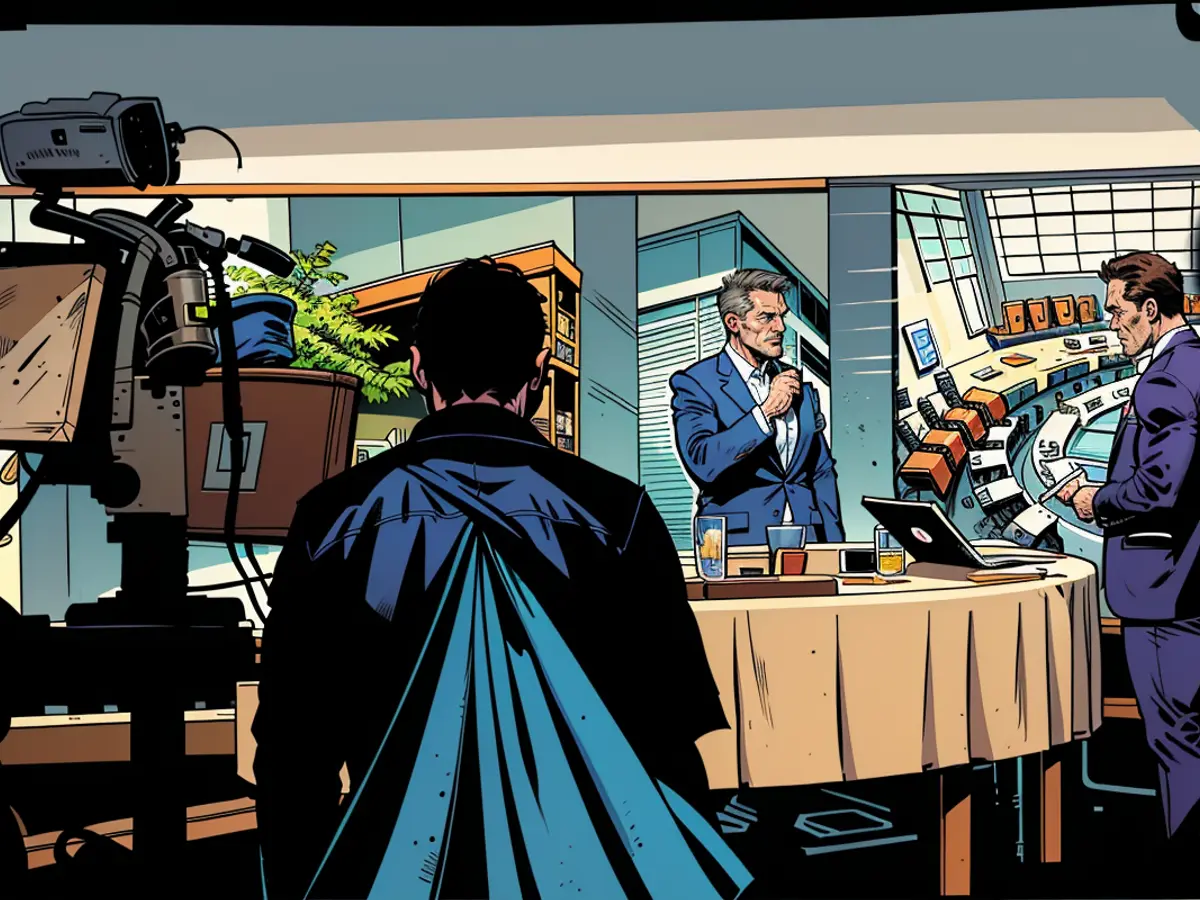- "It appeared to be quite some distance behind us."
From the get-go, the vibe for this interview was set clear. After Thuringia's Prime Minister Bodo Ramelow exited the ARD election studio, warning against the rise of right-wing extremism, AfD's leading candidate, Bjorn Hocke, made his way towards journalist Gunnar Breske's interview table. And the verbal sparring commenced.
Breske opened the conversation by stating the facts - a blow to Hocke's satisfaction it seemed: "You're the party with the most votes tonight, but you're also labeled as firmly entrenched in right-wing extremism." Hocke grumbled in response, "Oh, this is happening again." Breske countered, "Exactly, that's a fact." Hocke then retorted, "Want to discuss it? Stop labeling me. We're the number one people's party in Thuringia. You're not about to slap the 'right-wing extremist' tag on a third of Thuringia's voters, are you?"
Hocke has his sights on the BSW
During the discourse, the two men found no common ground. The topic of Hocke's next move to become Prime Minister remained elusive, instead, he called for the "old parties" to display humility. Many Thuringian residents, as Hocke pointed out, are disillusioned with democracy due to the "ridiculous firewall banter and the ridiculous firewall behavior."
As the strongest party, the AfD expressed the intent to include other parties in talks - a list he didn't provide. The BSW headed by Sahra Wagenknecht was at least a possibility he hinted. The two parties could manage a majority in the new state parliament.
If Hocke's right-wing extremist party managed to seize power, they aimed to reform the Office for the Protection of the Constitution. It would then primarily focus on "investigating economic espionage" and "shun ideological surveillance." Routinely, the AfD accusingly branded the democratically legitimate authority as "government protection" and attempted to cast the "[party's] labeling as 'firmly right-wing extremist' in several federal states" as repression of the opposition.
The AfD also planned to attack public broadcasting and dissolve the state broadcasting agreements. The Middle German Broadcasting could then face significant hurdles continuing to report unbiased from Thuringia - confrontational and critical interviews like the one from last night could become extinct.
Despite their contrasting views, Hocke expressed a desire to engage with the "old parties," including the BSW led by Sahra Wagenknecht. However, Hocke and the AfD criticized the Office for the Protection of the Constitution, aiming to shift its focus to economic espionage and away from ideological surveillance, viewed as repression by the AfD.








